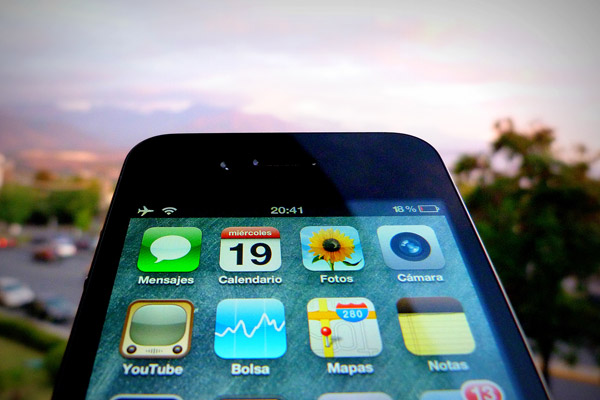
Lihor Strahilevitz, a U. of C. law prof who specializes in (among other things) privacy and technology law, wrote something the other day that caught my eye in "The iPhone, Not the Eye, Is the Window to the Soul" (emphasis mine): "I wanted to point everyone to the most important privacy research of 2012. The same paper qualifies as the most ignored privacy research of 2012, at least within legal circles. It is a short paper that everyone should read."
It's entitled "Mining large-scale smartphone data for personality studies" (PDF). If you've ever taken, say, a Myers-Briggs personality test, the general idea will be familiar: There are certain personality types, and the way you react to certain situations defines where you fall within them. But Myers-Briggs is self-diagnostic. What if you had a tool that monitors personality-identifying behavior—some kind of medium through which you interact with the world, and one that you couldn't game?
Like, for instance, your cell phone. A reasonably full-featured smartphone has a subtly large number of interfaces for interacting with people. It can make calls, text, send e-mails, share photos, set your calendar, access the Web, and play music and videos. The researchers, Gokul Chittaranjan, Jan Blom, and Daniel Gatica-Perez, looked at all these forms of interaction, and drew conclusions about the personalites of cell-phone use.
Here are the highlights of their findings:
- "Extraversion was found to be positively correlated to the use of the Office and Calendar apps. However, significant negative correlations was seen for the use of the Internet, Games and Camera."
- "Extraverts were more likely to spend more time on incoming calls, and also receive more calls. The total duration of calls and the number of unique contacts associated with voice calls was likely to be higher as well." (For what it's worth, I'm extremely introverted, and my typical monthly usage breaks down as follows: 45-120 minutes; 150-200 messages; 2 GB data. So, yeah.)
- "Agreeableness was found to be negatively correlated to the use of several applications, including Office, Internet, Video/Audio/Music, Mail, Calendar and SMS apps." This is no surprise: Conscientiousness "was found to be negatively correlated to the use of Video/Audio/Music and Youtube applications." More conscienscious people were also more likely to take calls."
- Higher SMS length was correlated with emotional stability… but negatively correlated with conscientiousness.
- They didn't just look at active use. The researchers also used bluetooth scans as "a noisy proxy for the crowdedness of a place"—i.e. if your phone is picking up on lots and lots of bluetooth signals, you're probably around other people a lot. As an introvert, this part didn't surprise me: "the number of BT IDs that were seen for long durations of time was likely to be higher for higher neuroticism" and "agreeable individuals had lesser number of BT IDs seen for long durations of time." Hell is other people, as measured by Bluetooth.
- The researchers even dug down into ringtones as personality indicators: "it was found that high openness was associated with the use of Beep and Ascending user profiles. This may be at- tributed to the curious nature of such users, who try out the user of profiles other than the commonly used Normal or Silent profiles."
For someone who studies privacy and intellectual property as part of his job, this raises red flags for Strahilevitz:
Privacy law has focused its attention on protecting the contents of communications or the identities of the people with whom an individual is communicating. The new research suggests that—to the extent that individuals have a privacy interest in the nature of their personalities—an enormous gap exists in the present privacy framework. Cell phone providers and manufacturers are sitting on (or perhaps already using) an information gold mine.
It's very unlikely that the phenomenon that Chittaranjan et al. identify is limited to phones. I expect that similar patterns could be identified from analyzing peoples' use of their computers, their automobiles, and their televisions. The Chittaranjan et al. study is a fascinating, tantalizing, and perhaps horrifying early peek at life in a Big Data world.
It's not at all limited to phones: "'The person who buys a skull for their car, they are like people who go to a bar named Sharx,' Martin told me. 'Would you give them a loan?'" It's what Coach Finstock knew all along, just automated.
Aside from the privacy concerns that Strahilevitz notes (and which he is pessimistic about; PDF), it did make me wonder if cell-phone users could employ that data. If an introvert wished to practice being more extraverted, or someone who's not conscienscious wanted to improve his habits, whether that data could be fed back to the individual user, at least getting some little but perhaps powerful data back from the Big Data exchange.
Photograph: GONZALO BAEZA (CC by 2.0)


